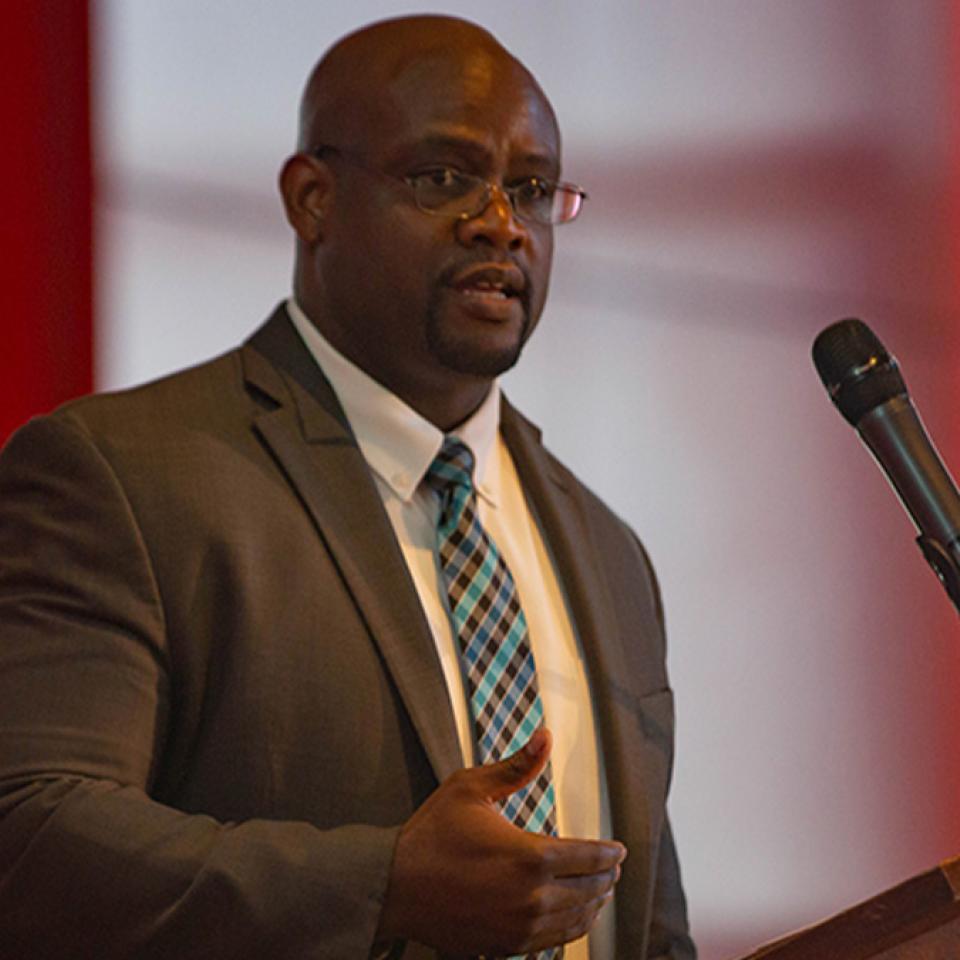We couldn’t be happier to welcome back Erick Torres, RN to the agency as our new Director of Nursing. Erick earned his Bachelor’s of Science in Nursing at Miami Dade College and brings six years of nursing and nurse management experience. A true team player, Erick’s years in our Pediatric & Family Clinic demonstrated his enthusiasm for the work, easy rapport building with clients and passion for collaboration. Get to know him in this Q&A.


10.26.20
"But the end is reconciliation; the end is redemption; the end is the creation of the beloved community."
- Dr. Martin Luther King, Jr.
By Senior Director of Equity & Engagement Eddie Martin, Jr.
When Dr. Martin Luther King, Jr. conceptualized the thought of a beloved community in his 1956 speech, Facing the Challenge of a New Age, he envisioned a society where all people regardless of race, background, or position, were united in a common purpose to establish justice for all and ensure a better society for generations to come. Sixty-four years later, his vision and approach are still necessary. White families possess 41x more wealth than Black families and 22x more than Latinx families. Blacks have died from COVID-19 at 2.5x the rate of whites. The poverty rate for white men stands at 7%, whereas it is 20% for Black women.[1]
In our country, the health and economic impacts of this pandemic make it impossible to deny that racial disparities exist. And these disparities are most apparent among society’s most distressed populations – specifically persons experiencing homelessness.
* * *
Who is to blame and whose responsibility is it to “fix” these complications? Are these even the right questions we should ask, or do such thoughts lead to the externalization of disparaging issues instead of the chance to engage in the process of self-examination? Friends and colleagues, together we have the opportunity and obligation to help improve the life outcomes of fellow citizens who are most in need.
We must ask ourselves, will we engage in the liberation work necessary to dismantle dominant practices and create a society that is truly equitable for ALL people, or will we sit idly by while current and unborn generations reap the destructive consequences and disproportionate benefits of a “do-nothing” attitude. In our quest for truth and justice, will we serve as authentic allies who use our compassion, conviction and power to redistribute power and resources to our most vulnerable populations? It was Martin Luther King, Jr. who once stated, “Power at its best is love implementing the demands of justice, and justice at its best is love correcting everything that stands against love.”
THIS IS OUR CHANCE TO work collectively to create a more just society and eliminate the racial and health barriers that hurt not just our communities most in need, but harm us all.
Read more on our commitment to racial equity work
[1] Institute for Policy Studies (2020). Facts: Racial Economic Inequality. https://inequality.g/facts/racial-inequality/
More Recent News
Transgender Day of Visibility is dedicated to celebrating and raising awareness about the transgender community worldwide. The day aims to promote greater understanding, acceptance, support, and inclusivity for transgender people.
March welcomes Women’s History Month. We come together to honor all those who experience life through the lens, body, spirit, and identity of a woman. Explore a few ways you can celebrate Women’s History Month— past, present, future, and fluid— in 2025.
February 1st marks the start of Black History Month. During this time, we have a chance to focus on the significant role Black populations have played in shaping the world and to celebrate their contributions to society that have often gone overlooked.